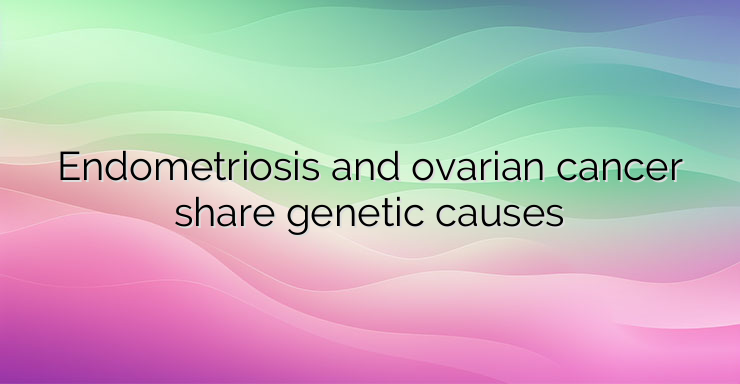Endometriosis is a chronic disease characterized by the extrauterine growth of tissues similar to those of the uterine lining. These tissues can grow in the ovaries, peritoneum, rectum, bladder, or even in organs located further away from the reproductive system, such as the lungs. Like the tissues of the endometrium, these lesions are subject to hormonal fluctuations inherent in the menstrual cycle and cause very severe pain. This disease can also lead to infertility. Using data from genome-wide association meta-analyses between endometriosis and epithelial ovarian cancer, Dr Sally Mortlock and Prof Grant Montgomery from the University of Queensland’s Institute of Molecular Bioscience have found a significant genetic correlation between these diseases. Although endometriosis is considered a benign change, it shares several common characteristics with cancer, including metastatic behavior, tissue invasion, proliferation, angiogenesis — the formation of new vessels, and reduced apoptosis — a process that causes cells to self-destruct, the researchers explain in the journal Cell Reports Medicine . In addition, several previous studies have shown that women with endometriosis have a two to three times higher risk of developing epithelial ovarian cancer. Dr. Sally Mortlock and her team have conducted extensive genetic research to identify the link that exists between these diseases and, above all, to better understand how they develop. They compared the genomes of about 15,000 women with endometriosis and 25,000 women with ovarian cancer to find overlapping risk factors between the two diseases. People with certain genetic markers that predispose them to endometriosis also have a higher risk of developing certain subtypes of epithelial ovarian cancer. Increased risk of developing cancer Researchers have reported significant positive genetic correlations between endometriosis and various subtypes of ovarian cancer. Although the diseases are clearly genetically linked, Dr. Mortlock clarifies that the risk of ovarian cancer in patients with endometriosis is not significantly increased. The studies found that 1 in 76 women are at increased risk of developing ovarian cancer in their lifetime, and endometriosis slightly increases the risk to 1 in 55 women, so the overall risk still remains low. Through this genetic study, the team was able to identify genes that could represent new drug targets for the treatment of both endometriosis and epithelial ovarian cancer. In particular, the researchers believe that these targets may facilitate preventive pharmacological intervention aimed at disrupting the link between the development of endometriosis and epithelial ovarian cancer. Sources: https://www.science-et-vie.com/corps-et-sante/lendometrioseet-le-cancer-des-ovaires-sont-lies-geneticement-67529?uid=NTAyNDMw https://www.cell .com/cell-reports-medicine/fulltext/S2666-3791(22)00042-8?_returnURL=https%3A%2F%2Flinkinghub.elsevier.com%2Fretrieve%2Fpii%2FS2666379122000428%3Fshowall%3Dtrue


Leave a Reply